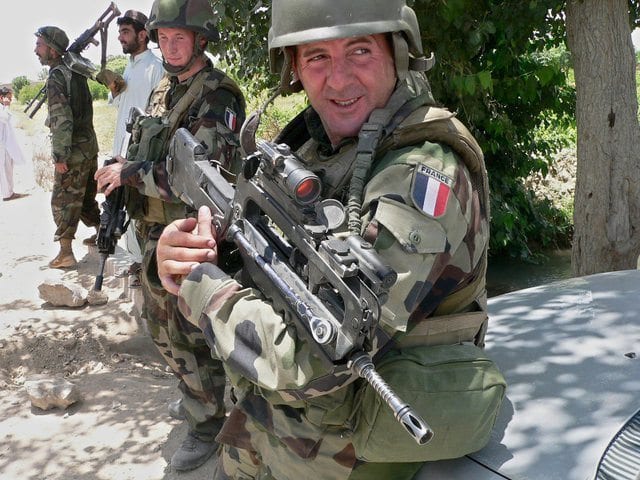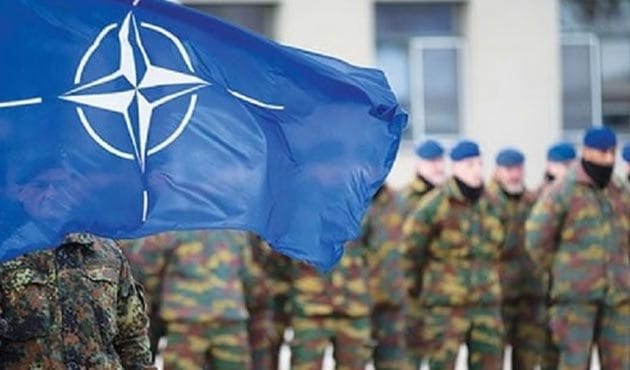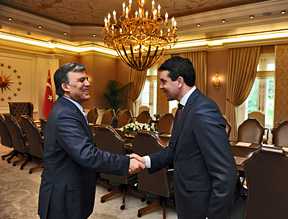Expanding membership is not on the agenda of next week’s NATO summit in Chicago, but Turkey is attempting to raise the issue through an indirect meeting at the summit for Macedonia, Montenegro, Bosnia and Herzegovina (BiH) and Georgia, with a special focus on Macedonia.
”]![MISKOphoto Macedonia Foreign Minister Nikola Poposki, right, met with Turkey President Abdullah Gül during his official visit in Turkey. [Macedonia Foreign Affairs Ministry]](https://www.turkishnews.com/en/content/wp-content/uploads/2012/05/MISKOphoto.jpg) “Macedonia’s request for membership is very just and is a contribution to the peace and stability in the Balkans,” Cemil Cicek, president of Turkey’s parliament, said during his visit in Skopje on Thursday (May 17th).
“Macedonia’s request for membership is very just and is a contribution to the peace and stability in the Balkans,” Cemil Cicek, president of Turkey’s parliament, said during his visit in Skopje on Thursday (May 17th).
Cicek said Turkey will do everything it can to put the question of Macedonia’s entry in NATO on the table.
“The newly-created situation after the ICJ’s verdict imposes the need at the forthcoming Chicago summit to redefine the conclusion from [the summit in] Bucharest which was a result of the illegal behaviour by Greece,” Macedonia President Georgi Ivanov said.
Greek diplomacy was jolted into action again, given the support Macedonia — and Turkey’s initiative — is receiving from Great Britain, Norway, Croatia and Slovenia.
“We do not have only a problem with Greece. Some leading countries in NATO solidarised with Greece’s unjust politics, and in calling on Macedonia to change its name, they are forcing Macedonia to capitulate. They are asking the impossible of a country dedicated to NATO and its missions,” Biljana Vankovska, professor at the Institute for Security, Defence and Peace Studies, told SETimes.
Given that Greece has no government and is facing a severe political-economic crisis, the country’s political parties met to formulate a common position for the summit.
According to the transcripts provided by Greek President Karolos Papoulias, the parties agreed not to change Greece’s position in the dispute it imposed on Macedonia.
“Our arguments should be smarter than those offered in 2008. We have to strengthen them more skillfully and more intelligently,” Evangelos Venizelos, leader of PASOK, said.
They announced if there is an attempt to pose the question of Macedonia’s membership, Greece will issue a new veto, regardless of the verdict of the UN’s International Court of Justice which classified the first 2008 veto illegal.
“We must not back down from the agreement in Bucharest. In case of a surprise, certainly there should be a veto that moment,” Andonis Samaras, leader of New Democracy, said.
Dimitar Mirchev, a former ambassador and senior adviser to Macedonia’s president, said he is surprised by Athens’ open announcements to use a veto in spite of international law and Greece’s obligations under international and bilateral agreements.
“If Greece uses a veto in Chicago, conditions will be created for a new lawsuit in The Hague. Greek politicians should be aware such a development will weaken Athens’ position in the international community and will contribute to the worsening of the security of the entire region,” Mirchev told SETimes.
This content was commissioned for SETimes.com.
via Turkey advocates for Macedonia to join NATO (SETimes.com).




